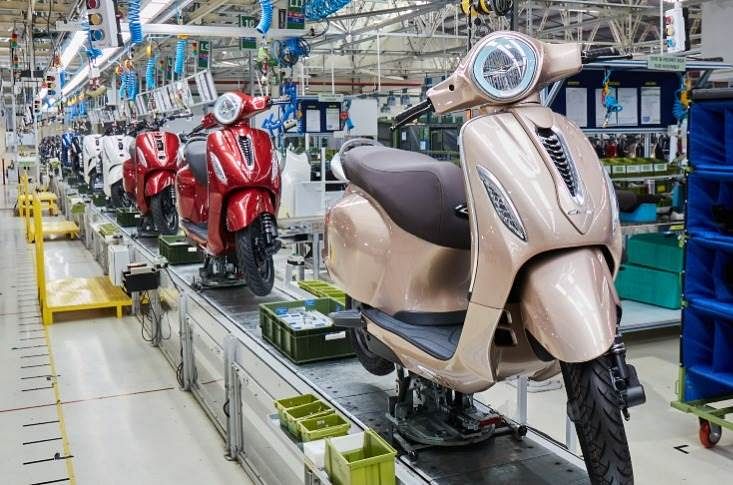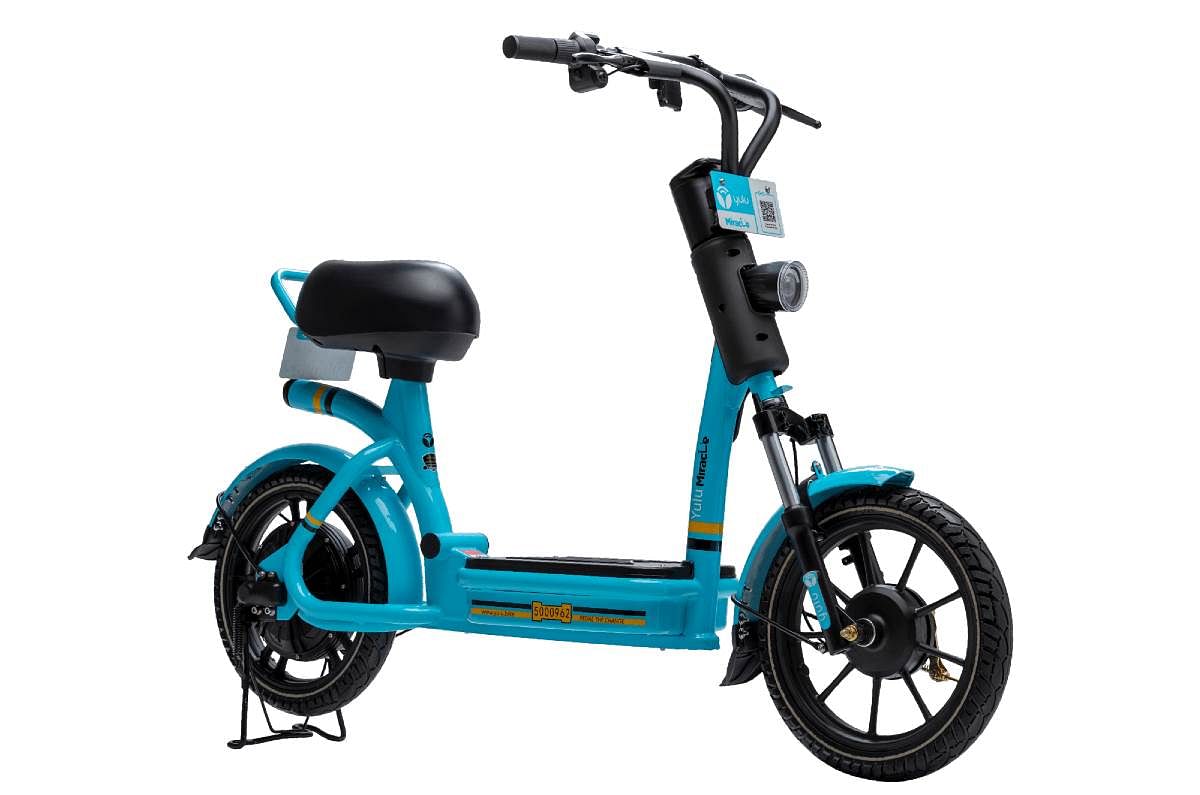Bajaj Auto targets doubling of Chetak EV sales by March 2023
The company, which aims to sell 6,000 Chetaks a month in India by end-FY2023, is bullish about demand for its electric scooter.
Bajaj Auto, whose electric vehicle journey has begun with the Chetak e-scooter, is targeting monthly sales of 6,000 Chetaks by the end of March 2023. This is as per Eric Vas, president of Urbanite at Bajaj Auto, who spoke to Autocar India about the company’s short- and long-term plans in the EV industry.
In the first five months of FY2023 (April-August 2022), the company has registered wholesales of 12,023 units which makes for a monthly average of 2,404 units. This number is essentially due to restrictions caused by supply issues more than anything else. Considering that the Chetak is sold through around 45 outlets across India, Vas says the number is quite good given that some rivals have more retail outlets.
“The consensus on the semiconductor situation is that you will probably not see free supply return till the end of 2023, but we will have significantly increased supply in the interim and we would like to exit this financial year at the rate of about 6,000 units per month,” says Vas.
Government EV subsidies
Commenting on the growing EV market since the launch of Chetak in late 2019, Vas says much of it is due to the government push. “A lot of the EV boom has been down to government intervention like the generous subsidy and PLI scheme,” he notes. “The industry will gain a momentum of its own, but how big and deep it will be is very difficult to establish right now, but my guess is it is here to stay.”
At the same time, he cautions that a reliance on subsidies is not a wise move in terms of product planning. “We appreciate the subsidy and the government has done a great job, but we must be realistic that subsidies will come down over time. That makes the strategy of putting large amounts of battery in the vehicle a difficult one to implement in the long term. Moreover, contrary to earlier expectations, lithium-cell costs have only gone up in the last two years,” he adds.
Localising Bajaj EV products
Just like every other manufacturer, the pandemic hit Bajaj’s EV product development schedule, causing a delay of six to nine months. Vas says, “That’s mainly on account of vendors not getting certain components, not being able to scale. We have a very strong pipeline planned and as Rajiv Bajaj mentioned, we’ll come out with a new product every year.”
He points out that the company has taken a big step forward with the Chetak that is now almost fully localised, aside from the chips and battery cells. “The original Chetak EV had a lot of parts that were coming from global suppliers. Now the vehicle that has been sold since January this year has 100 percent Bajaj IP. Every part is Bajaj IP and that is a major step-change when we aspire to be a global player.”

He says it is important that the OE has a thorough understanding of the many parts and technologies. “We can’t make chips or batteries, but we’ve chosen where we want to make intellectual property investments and I think we are ahead of the curve compared to everyone else, certainly in India, and I would even go so far as to say that even globally there are only two or three manufacturers who are ahead of us in terms of being able to have the kind of IP resources,” he adds.
The Chetak is currently the most expensive of the mainstream EVs on sale in India, but Vas states that Bajaj wants to be a player that addresses many segments and cites the example of the upcoming Yulu micro mobility product that Bajaj is developing. Yulu is the last-mile, shared mobility start-up that Bajaj invested in in 2019.

The current Yulu e-bike is being assembled by Bajaj, but the Chakan-based manufacturer will reveal a brand new, locally designed and developed micro mobility solution for Yulu in the coming months.
“When we started micro-mobility with Yulu, the only source was getting the kits in from China. Yes, we localised some components. We learned very quickly that the Chinese product simply doesn't stack up to the Indian operating environment. Now with the kind of products that you will see Yulu putting on the road – you will see Indian OE’s delivering superior products.”
Vas discounts the plethora of low-cost EVs of Chinese origin being sold in India.
“Everyone says the Chinese will swallow us. I don’t think that will happen because in the two-wheeler space, they have never shown the ability to make a product that can really stand up to varied operating environments. They make products which work very well in their operating environment, and in all fairness to them, they have a big market so why not. But we’ve not seen them succeed too much globally and this has been historic even with ICE. We are absolutely confident that when we take our product globally, it will succeed.”
Global ambitions for EVs
Bajaj certainly has huge aspirations in the EV space with aims to be one of the top players on a global scale. Vas says the brand wants to be the world’s largest EV player outside of China in two- and three-wheelers. “I think in all fairness it can happen in five or six years. I think we will have the product portfolio to do that.”
That is undoubtedly a huge journey from where Bajaj currently stands in the EV space; and the next piece in the puzzle will fall into place with the start of exports that should begin by the end of this fiscal year.
ALSO READ
Bajaj Chetak and TVS iQube ride surging wave of EV demand in April-August 2022
https://www.autocarpro.in/news-national/bajaj-auto%E2%80%99s-august-sales-up-by-8-percent-92672
RELATED ARTICLES
Cosmo First diversifies into paint protection film and ceramic coatings
The Aurangabad, Maharashtra-based packaging materials supplier is leveraging its competencies in plastic films and speci...
JSW MG Motor India confident of selling 1,000 M9 electric MPVs in first year
The 5.2-metre-long, seven-seater luxury electric MPV, which will be locally assembled at the Halol plant in Gujarat, wil...
Modern Automotives targets 25% CAGR in forged components by FY2031, diversifies into e-3Ws
The Tier-1 component supplier of forged components such as connecting rods, crankshafts, tie-rods, and fork bridges to l...






 21 Sep 2022
21 Sep 2022
 16729 Views
16729 Views





 Autocar Professional Bureau
Autocar Professional Bureau




